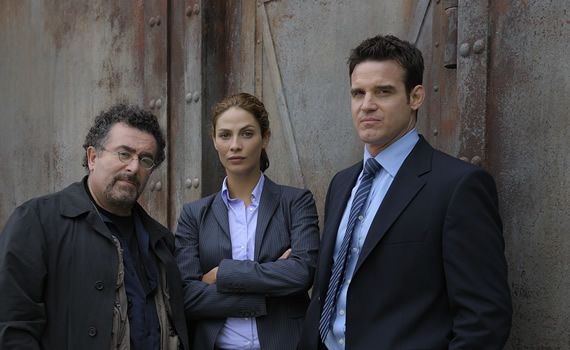The news that Syfy's Warehouse 13 mysteriously dropped in the ratings last week got me thinking about television ratings and the weirdness therein... Mainly, it got me wondering: are all television shows destined to lose viewers?
Before anyone gets too worried about Warehouse 13, it's not as bad as it sounds; turns out the sudden drop was pretty much a return to the season's average viewership before the Eureka crossover had given the show a temporary bump upwards. But even with that in mind, the show seems to have lost more than half a million viewers since its season premiere, which was on par with the previous season's ratings... but why? It's not as if the show has become any less watchable, or changed timeslots. It's just... lost viewers.
I'm reminded of the way that, in comics, a "gentle decline" in readership seems to be the norm; anytime a book grows in numbers, it seems unusual, something worthy of comment. We're more used to, we expect, everything to slowly go down in sales because, we've convinced ourselves, the comic industry just works that way. It's slowly dying, perhaps, or comics are too expensive and people are waiting for trades, or whatever. But those arguments don't really follow for television, and audiences tend to leave their favorites there, as well. The finale of Lost had five million fewer people watching than tuned in for the pilot, and that's ignoring both that the finale's audience was significantly (four million) up from the rest of the season, or that during the show's peak in popularity, it was getting ten million more people tuning in on a regular basis. Heroes, similarly, divebombed in the ratings after its first season, to the point when it was canceled. Even shows like Two And A Half Men and CSI have fallen from their pedestals over the last few years. But why?
I wonder if both comics and television suffer from the same problem: That most people - that is, the mainstream public, not we devoted fans - don't want to follow the same people for too long, because they lose interest. They need novelty (Like a Eureka crossover, for example) to pay attention, and most successful longform storytelling shies away from that, for fear of disrupting the natural flow of the story. I'm not sure what the solution to that is: Being okay with losing viewers? More sensationalistic storytelling (Not that that necessarily has to be a bad thing: Eureka's continuity reboot this year has brought viewers in and made the show better, in my opinion)? Chaining people to their televisions and taking their remotes away?
What do you think?

